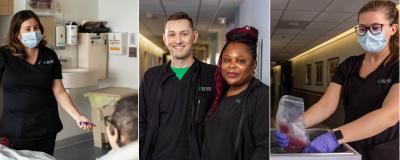As we moved through the year with many changes and challenges, we persevered. The FY 2022 Nursing Annual report shows how RUSH nurses continued to work together to provide the best patient care.
We are RUSH Nurse Proud.
RUSH nurses continue to have a voice to ensure excellence in patient care and staff engagement. Professional Nursing Staff gives RUSH nurses a structure to achieve excellence and to move forward together.
RUSH nurses have a lot to be proud of. We celebrate the awesome achievements of our nurses, from winning prestigious awards to writing research papers, making presentations to sharing their findings and advancing the practice of professional nursing.
Transformational leadership is vital to transcend the challenges that we all have faced in last few years. RUSH nurses embraced these challenges, seeking and implementing new solutions that result in better patient care.
Structural empowerment is about making sure that all RUSH nurses can access the path to changing what needs to be changed and improving how we care for each other, our community, and our patients
RUSH nurses provide exemplary professional practice, which ensures that patients receive the best care possible and that their needs are met. They keep finding better ways to do nearly everything. RUSH nurses can’t see a problem without seeking a solution.
New knowledge, innovations and improvements help RUSH nurses to be the best. Every day presents opportunities to excel and advance the art and science of nursing. RUSH nurses always rise to the challenge.
